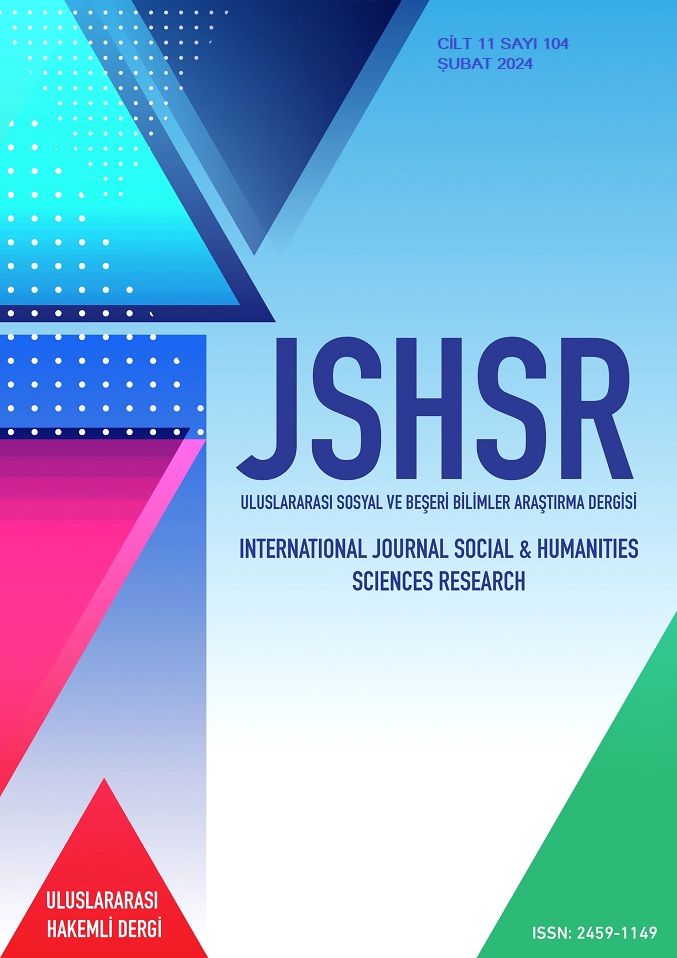Examining the Relationship Between Healthy Eating Habits in Individuals, Educational Status, Student Being and Various Variables
DOI:
https://doi.org/10.5281/zenodo.10737382Keywords:
Nutrition, Nutrition Habits, Education, HealthAbstract
The concept of food refers to plant and animal tissues that are edible and provide vital elements when taken into the body. Nutrients are generally obtained from plant and animal sources. Healthy nutrition is a nutritional approach that includes taking the nutrients the body needs in the right amounts and at the right times in line with adequate nutrition. Nutritional habits are effective in shaping the life of individuals. Having correct nutritional habits in school children can also reduce the risk of many health problems, including diabetes, coronary heart diseases, obesity and cancer, during adolescence, youth and adulthood. Health problems arise in people whose nutritional habits and knowledge are incorrect, their quality of lives may deteriorate and results such as obesity may occur.
Considering that nutrition and eating habits are so important in the healthy nutrition process of all segments of society, from babies to school-age children, from teenagers to adults; This study aimed to examine the relationship between healthy eating habits in individuals and various demographic variables such as educational status, marital status and gender. Research data was collected online between 22 December 2023 and 22 January 2024. The Attitude Scale towards Healthy Nutrition (HBITS) was used to collect data. The data obtained as a result of the application of measurement tools for the quantitative dimension of the study were analyzed with the SPSS for Windows 22.0 package program. When the research findings were examined, it was seen that 50.1% of the 869 participants were male, 57.7% were single, 41.3% were university graduates, 31.6% were students and 95.1% lived in the city. It was determined that the participants' attitudes towards healthy nutrition, knowledge about nutrition, feelings towards nutrition, positive nutrition and bad nutrition attitudes differed depending on their educational level. Regarding student status and eating habits, it has been observed that students and civil servants have more knowledge about nutrition than workers, students have more knowledge about nutrition than tradesmen, students' emotional attitudes towards nutrition are higher than other tradesmen and housewives, and housewives are higher than workers. Different results have been obtained in research on the relationship between nutritional attitudes and various other variables such as gender, body weight, and marital status.
References
Akça, F. (2020). Spor ve sağlık bilimleri 1. Gülsün Güven (Ed.). Sporda Beslenme 1 (s. 69-88). Eskişehir: Anadolu Üniversitesi Yayınları.
Aksoy, M., (2011). Beslenme biyokimyası (1.Basım). Hatiboğlu Yayınları.
Arı Y, & Çakır E. (2021). Correlation between participation in physical activity and healthy nutrition: An example of a sports science faculty. Baltic Journal of Health and Physical Activity, 13(3), 37-45.
Aydın, G. E., (2017). Sağlıklı bireyler için temel beslenme el kitabı (1.Basım). Türk Böbrek Vakfı Yayınları.
Ayer Ç. (2018). Çivril yöresindeki adolesanlarda beslenme okuryazarlığının mevcut durumu ve etkileyen faktörler. [Yüksek Lisans]. SB Enstitüsü, Pamukkale Üniversitesi.
Çevik, A., Dokuzoğlu, G., & Zorba, E. (2023). Fitness Egzersizi Yapan Bireylerin Beslenmeye Yönelik Tutumlarının Belirlenmesi. Gümüşhane Üniversitesi Sağlık Bilimleri Dergisi, 12(3), 1375-1383.
Demir, G.T., Namlı, S. & Cicioğlu, Hİ. (2021). Takım ve Bireysel Sporlarda Sosyal Görünüş Kaygısı Sağlıklı Beslenmeye İlişkin Tutumun Belirleyicisi midir? Spormetre Beden Eğitimi ve Spor Bilimleri Dergisi, 19(4), 124-134.
Duralı, Ö. (2019). Yetişkin kadın bireylerde beslenme bilgi düzeyinin ve beslenme durumunun saptanması. [Yüksek Lisans Tezi]. SB Enstitüsü, Trakya Üniversitesi.
Erdoğan, R., Tel, M., Yıldırak, A., Nazlıcan, N., Çelik, O., Nazlı, V., & Nazlı, M. (2023). Lise ve Ortaokul Öğrencilerinin Sağlıklı Beslenme Alışkanlıklarının Karşılaştırılması. Spor, Sağlık ve Eğitim Araştırmaları Dergisi, 2(1), 9-21.
Öztürk D. (2021). Examining the Relationship between Healthy Nutrition and Performance Enhancing Attitudes of Team and Individual Athletes. International Journal of Applied Exercise Physiology, 10(2), 65 75.
Pekcan, G., (2004). Adölesan döneminde beslenme. Klinik Çocuk Forumu Dergisi, 4(1), 38 – 47.
Sönmez, YE. (2022). Üniversite öğrencilerinin sağlıklı beslenmeye ilişkin tutumları ile anksiyete bozukluğu arasındaki ilişkinin değerlendirilmesi. [Yüksek Lisans Tezi]. SB Enstitüsü, Haliç Üniversitesi.
Şanlıer, N., Konaklıoğlu, E., & Güçer, E. (2009). Gençlerin Beslenme Bilgi, Alışkanlık ve Davranışları İle Beden Kütle İndeksleri Arasındaki İlişki. Gazi Üniversitesi Gazi Eğitim Fakültesi Dergisi, 29(2), 333-352.
Tamel, ZG. (2018). Öğretmen ve öğretmen adaylarının beslenme okuryazarlık düzeylerinin belirlenmesi ve sağlıklı beslenme ile ilgili görüşleri. [Yüksek lisans tezi]. FB Enstitüsü, Kastamonu Üniversitesi.
Tekkurşun, G.D. & Cicioğlu, Hİ., (2019). Sağlıklı Beslenmeye İlişkin Tutum Ölçeği (SBİTÖ): Geçerlik ve Güvenirlik Çalışması. Gaziantep Üniversitesi Spor Bilimleri Dergisi, 4(2), 256-274.
Trakman, G.L., Forsyth, A., Devlin, B.L. and Belski, R. A (2016). Systematic review of athletes’ and coaches’ nutrition knowledge and reflections on the quality of current nutrition knowledge measures. Nutrients, 8(9), 570.
Ünsal, A. (2019). Beslenmenin önemi ve temel besin öğeleri. Kırşehir Ahi Evran Üniversitesi Sağlık Bilimleri Dergisi, 2(3), 1-10.
Yabancı, N. (2011), Okul Sağlığı ve Beslenme Programları, TAF Preventive Medicine Bulletin, 10 (3), 361-368.
Downloads
Published
How to Cite
Issue
Section
License
Copyright (c) 2024 INTERNATIONAL JOURNAL OF SOCIAL HUMANITIES SCIENCES RESEARCH

This work is licensed under a Creative Commons Attribution 4.0 International License.


